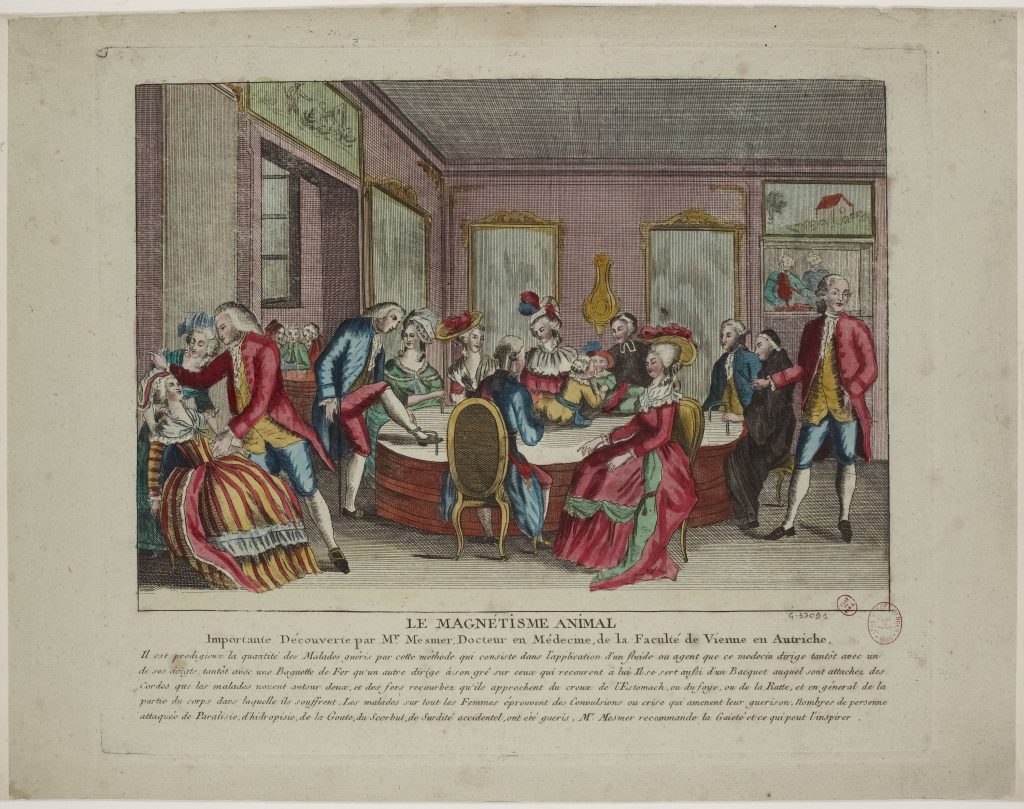
Mesmerism, or animal magnetism, was a theory and practice developed at the end of the 18thcentury by the German doctor Franz Anton Mesmer (1734-1815), who postulated the existence of a fluid energy source circulating throughout the universe. According to Mesmer, this fluid was to be found in each human being, and its inadequate propagation within the body the source of illness. The practice of mesmerism by a magnetiser consisted of redirecting his own fluid toward the body of the patient to ensure healing.
Following several run-ins with the Viennese authorities, Mesmer settled in Paris in 1778. His consultations were so popular that he was compelled to organise group sessions.
‘Just then an extraordinary man was making himself known in Paris, gifted by faith with an incalculable power, and making use of the magnetic powers in all their applications. Not only did this great unknown, who is yet living, himself suddenly and radically cure the most cruel and most inveterate illnesses from a distance, like the Saviour of mankind did formerly; but he would also produce the most curious instantaneous phenomena of somnambulism by mastering the most rebellious wills. The physiognomy of this stranger, who is said to depend only upon God and to communicate with the angels, like Swedenborg, resembles a lion; a concentrated, irresistible strength flashes from it. His singularly distorted features have a terrible and startling appearance; his voice, which comes from the depths of his being, is as if charged with magnetic fluid, it penetrates the hearer through every pore.’
Honoré de Balzac, Ursule Mirouët, 1842. (Translation May Tomlinson)
Despite the moral and scientific controversies, it aroused, mesmerism persisted in the broader concept of magnetism, to which Balzac makes reference throughout La Comédie humaine. Not content simply to illustrate the effects of magnetism, he also attempts to express its founding principles. The theory of fluids thus combines with broader ideas, and certain paragraphs are saturated with mesmerism, as, for instance, those concerning the influence of the will, the renewal of faith and education.
